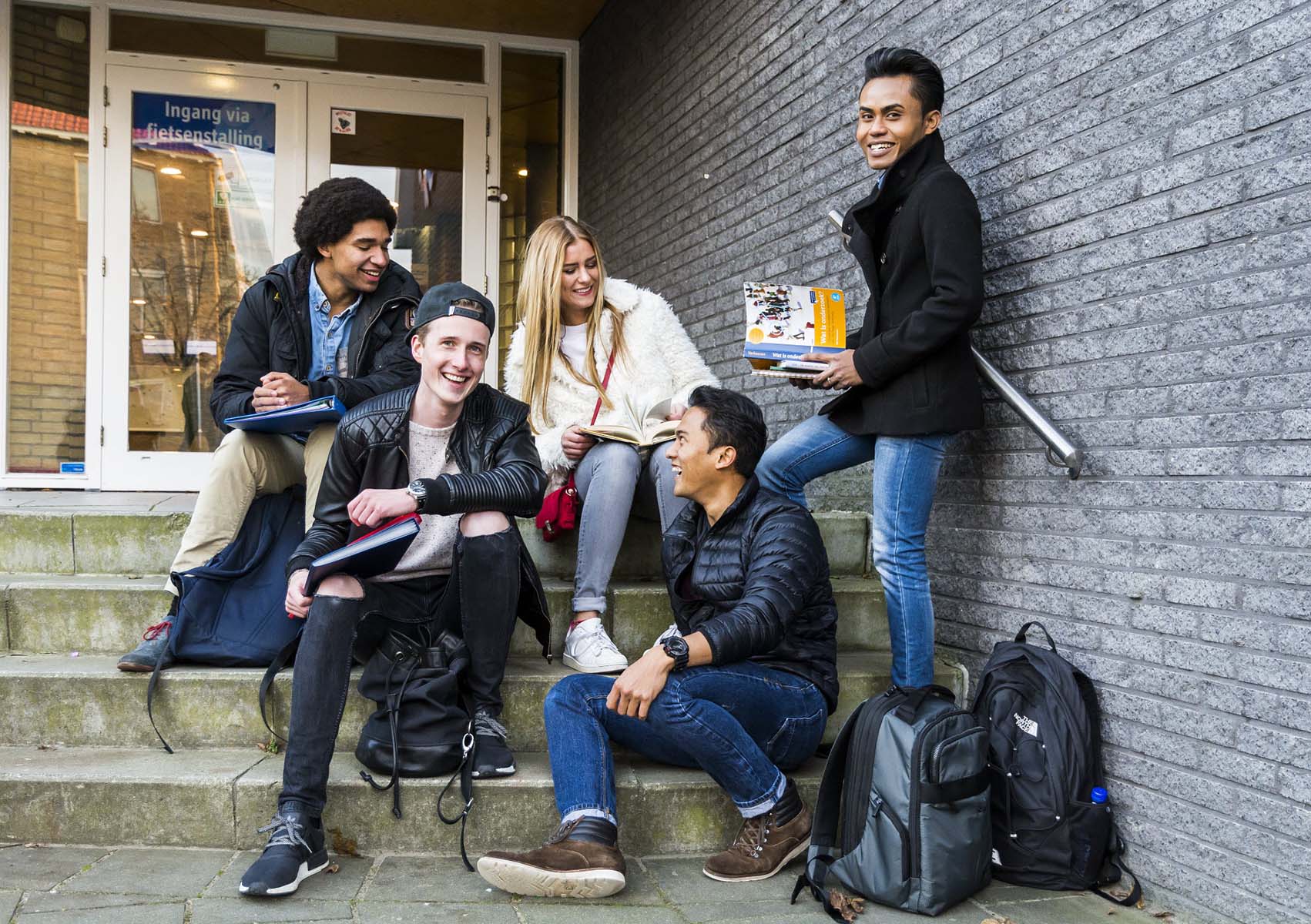Maatschappijprofielen sluiten niet aan op universitaire opleidingen
Leerlingen met een natuurprofiel doen het beter op de universiteit, ook in de alfa- en gamma-opleidingen. Omdat dit niet het doel was en is van de verschillende vwo-profielen pleit promovenda Els van Rooij in haar proefschrift voor een nieuwe discussie hierover. Cruciaal voor een goede voorbereiding van leerlingen op een universitaire opleiding is volgens haar ook dat er meer universitair geschoolde vwo-leraren voor de klas komen. Van Rooij promoveert 15 maart aan de Rijksuniversiteit Groningen.
Van Rooij keek in haar onderzoek eerst naar de rol van de leerling. Hoe nieuwsgierig en gemotiveerd leerlingen op het vwo zijn, hoe hard ze werken en op welke manier ze leerstrategieën gebruiken, hangt samen met hoe ze het later op de universiteit doen, ontdekte ze. Voor alle leerlingen is het belangrijk dat nieuwsgierigheid, wetenschappelijke interesse en het effectieve gebruik van leerstrategieën zoals zelfregulatie al wordt gestimuleerd op het vwo.
Rol van de leraren
Vwo-leraren van de bovenbouw vinden het stimuleren hiervan ook belangrijk, maar slechts een minderheid besteedt hier in de praktijk expliciet aandacht aan. Volgens Van Rooij heeft dit te maken met een aantal belemmeringen die veel leraren ervaren. Zo blijken ze niet goed te weten wat de universiteit van eerstejaarsstudenten verwacht en waar zij dus aandacht aan moeten besteden in de voorbereiding. Daarnaast zijn ze veel tijd kwijt aan het voorbereiden van leerlingen op de eindexamens: op deze resultaten worden scholen immers afgerekend. Bij sommige leraren heerst het idee dat iemand die slaagt voor het vwo-eindexamen automatisch klaar is voor de universiteit. Van Rooij: “Juist om leerlingen goed voor te bereiden op de universiteit, is het belangrijk dat zo veel mogelijk leraren in de bovenbouw van het vwo zelf een academische opleiding hebben gehad. Dit komt echter in gevaar nu veel universitair opgeleide leraren met pensioen gaan de komende jaren en de aanwas vanuit de universitaire opleidingen niet heel groot is.”
Profielen ter discussie
Leerlingen met een natuurprofiel doen het beter op de universiteit, zelfs in alfa- en gammaopleidingen. “De vraag is of de natuurprofielen een betere voorbereiding bieden op de universiteit of dat de betere leerlingen kiezen voor een natuurprofiel”, zegt Van Rooij. Uit haar onderzoek blijkt dat bètaleerlingen nieuwsgieriger zijn, meer wetenschappelijke interesse hebben en mede daardoor beter voorbereid lijken te zijn op de universiteit. Zij stelt dat de reden ook gezocht kan worden bij de negatieve beeldvorming van alfa- en gammawetenschap ten opzichte van bètawetenschap. Als een slimme leerling een maatschappijprofiel kiest, vindt de school dat vaak zonde, ook omdat je met een natuurprofiel bijna alles kan studeren en dus niks uitsluit.
Door de negatieve beeldvorming kiezen volgens Van Rooij nog maar weinig slimmeriken op het vwo een maatschappijprofiel. Terwijl de profielen juist bedoeld zijn om leerlingen voor te bereiden op een opleiding in het verlengde van hun profiel. Maar aangezien maatschappijleerlingen het niet beter doen in alfa- en gammaopleidingen dan natuurleerlingen, is het volgens haar van belang dat de waarde van de maatschappijprofielen in het voortgezet onderwijs wordt hersteld. “Maatschappijvakken op het vwo zouden inhoudelijk meer verbanden moeten leggen met universitaire alfa- en gammaopleidingen en meer diepgang en wetenschappelijk denken en werken kunnen aanbrengen in het profiel”, vindt Van Rooij.
Curriculum Vitae
Els van Rooij deed haar promotieonderzoek bij de Lerarenopleiding van de Faculteit Gedrags- en Maatschappijwetenschappen, waar zij inmiddels werkt als postdoctoraal onderzoeker. De titel van haar proefschrift is Secondary school students' university readiness and their transition to university.

Meer nieuws
-
20 januari 2026
Alcohol, appen en e-bikes
-
13 januari 2026
Lonneke Lenferink nieuw lid van De Jonge Akademie
-
08 december 2025
Burgerparticipatie onmisbaar voor een duurzame energietoekomst
